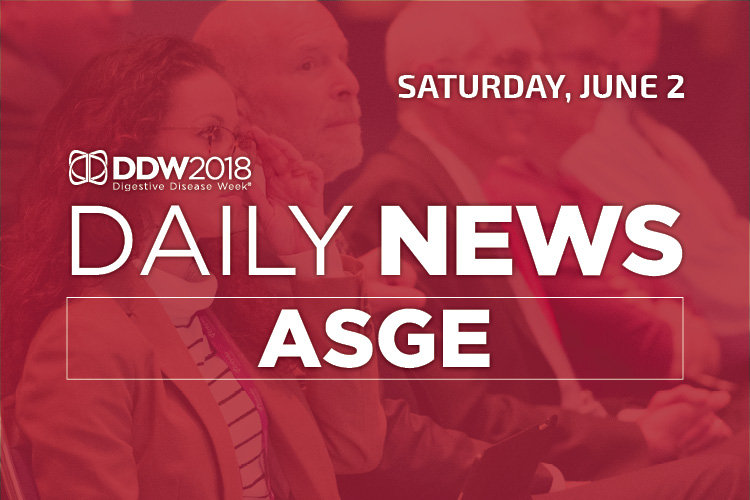
As obesity continues to strain the nation’s health care system, the promise of minimally invasive weight-loss interventions is drawing more attention. The implications of such therapies are the subject of Saturday’s ASGE Clinical Symposium The Skinny on Bariatric Endoscopy.
“The epidemic of obesity is perhaps the most pressing public health issue for our society, and we cannot seem to get a handle on the problem,” said Barham K. Abu Dayyeh, MD, MPH, FASGE, associate professor of medicine and director of metabolic and bariatric endoscopy, division of gastroenterology and hepatology at Mayo Clinic, Rochester, MN.
Dr. Abu Dayyeh will moderate the symposium with Christopher C. Thompson, MD, MS, FACG, FASGE, AGAF, director of therapeutic endoscopy at Brigham and Women’s Hospital and assistant professor at Harvard Medical School, Boston, MA.
“If you look at the magnitude of the problem, we’re talking about more than 18 million Americans who qualify for bariatric surgery, which means they have severe obesity,” Dr. Abu Dayyeh said. “And while an increasing number of bariatric surgery procedures are being performed, still only about 1 percent of patients who qualify are actually getting surgery. There are multiple reasons for this, including risks associated with the surgery, lack of enough surgeons doing these interventions and patients’ preference.”
The symposium will begin with a discussion of endoscopy’s role in managing complications following bariatric surgery.
“Endoscopy is probably the premier modality to manage complications of bariatric surgery and, with more bariatric surgeries being performed, we’re going to see more complications — leaks from the staple lines and anastomoses, marginal ulcers, strictures, etc.,” Dr. Abu Dayyeh said.
The symposium will then shift to the evolving role of bariatric endoscopy.
“The goal of bariatric endoscopy is to replicate the anatomic and physiologic changes that occur with bariatric surgery using minimally invasive techniques that might be applicable and appealing to a larger segment of the population, including patients with mild-to-moderate obesity for whom lifestyle interventions alone were not successful in managing their disease and who don’t qualify for bariatric surgery,” Dr. Abu Dayyeh said.
The symposium will conclude with a review of the logistics of incorporating bariatric endoscopic therapies into a clinical practice.
“Gastroenterologists are going to assume a forefront role in managing obesity, both in managing complications after bariatric surgery and for filling the gap between medical and surgical therapies,” Dr. Abu Dayyeh said. “This is going to be a big part of our future as a profession.”
Please refer to the DDW Mobile App or the Program section in Saturday’s issue for the time and location of this and other DDW® events.




One Response
Looking forward to attending this great symposium; thanks!